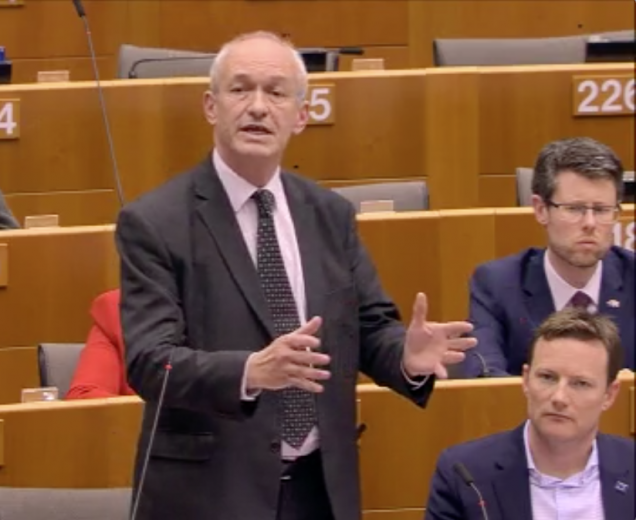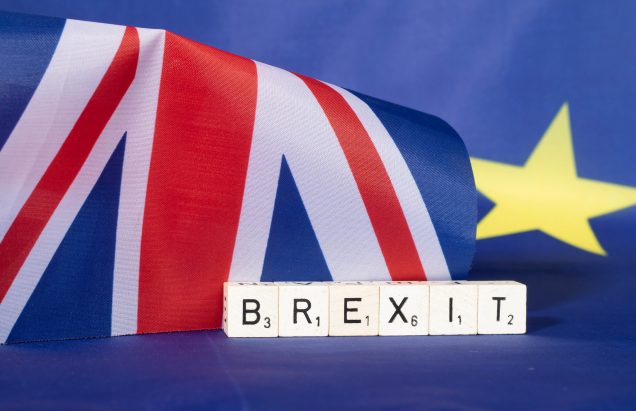Consumers across Europe have benefited greatly from EU-wide rules which not only protect them when buying products in their home country, but also when making cross-border purchases.
The UK’s membership of the single market and customs union ensure that there is a wider range of quality, affordable products on the market, giving consumers choice, along with common rules that give them assurances of standards when they make purchases.
So what benefits might British consumers lose if the UK leaves the EU? And, if we go ahead with Brexit, what measures should the government take to lessen these potential impacts?
1. Increased costs
The fall in the value of the pound, and the inflation that followed have already had an impact on prices for consumers in the UK; the cost of a loaf of bread has gone up 20 pence, laptops cost £400 more, and a buying a pint of beer will set you back up to 15% more than before the referendum.
If the UK leaves the EU, costs are set to increase even further.
If the government pushes ahead with May’s Chequers plan, EU businesses who wish to export to the UK will have to obtain:
- A certificate of origin
- A commercial invoice
- Haulage and shipping permits
- A customs valuation documentation
- VAT certification
- Extra security certificates and transit permits, depending on the agreement
At the moment, trade within the EU single market and customs union does away with such red tape and bureaucracy. UK companies need only a single administrative document. With extra documentation required after Brexit, companies are likely to face extra costs, which HMRC estimates would be around £17bn to £20bn a year and are likely to be met by the consumer.
If, because of all of this extra red tape, a driver with a refrigerated lorry is delayed at a port, this will create additional costs of around £500 per day.
Consumers also risk being burdened with higher prices for items such as clothing, as the UK importers will lose access to the EU’s trade agreements with third countries if we leave the EU. New trade agreements sought by the UK will have to be negotiated without the negotiating clout of the EU behind us.
It’s not just imported goods where prices are affected, though. Holidays have already become 6% more expensive since the devaluation of the pound, and there is uncertainty over whether roaming charges, which were removed within the EU in 2016, are to be reintroduced after Brexit, and Brits face higher energy prices if the UK leaves the EU-wide Internal Energy Market.
2. Pushing down quality and choice
Any delays at the border caused by post-Brexit checks and certification requirements will also have an impact on time sensitive, perishable goods, significantly reducing the quality of food available in the UK. This will affect not only the food the UK imports from the EU, which comprises about 30% of food consumed in the UK, but also products that cross the Irish border multiple times during processing and packaging.
Furthermore, consumers risk being sold fake products if the UK fails to legislate properly to continue to recognise geographical indicators. Geographical indicators identify the origin, quality, characteristics and reputation of certain foods, ensuring that they aren’t replicated by other countries and sold as the real product. Examples include Cornish pasties, Wensleydale cheese, Parma ham, and even Swiss watches.
Although maintaining the current geographical indicators is relatively simple, there is concern that pressure from countries with whom the UK wishes to strike new trade deals, such as Australia, will lead to fewer products being protected. Indeed, for a long time Australia has wanted to export a cheese of its own which masquerades as feta, and Brexit provides the perfect opportunity to do so.
Moreover, there are several EU agencies that monitor and guarantee standards and consumer protections across a whole range of sectors, from flights to food quality and from chemicals to components. UK consumers will face reduced quality and choice if the UK leaves certain EU agencies, which will happen automatically if the UK ceases to be a member of the EU, unless it manages to negotiate otherwise. The government has belatedly decided that it wants to stay in these agencies, but for many of them, their rules – drawn up with the UK approval at the time, preclude non-EU countries from having a full role.
The European Food Safety Authority (EFSA) is one such agency that is vital for consumer standards. It ensures not just food safety, but also standards for nutrition, and plant and animal health and welfare. Meanwhile, the European Aviation Safety Agency ensures the highest common level of safety protection for aircraft, as well as guaranteeing pan-European compensation for delays.
Not only are agencies such as EFSA likely to be lower on the agenda than, say, continued participation in the European Medicines Agency, but they will also involve the UK agreeing to judicial review of their decisions by the European Court of Justice, opposition to which May defined as one of her red lines. .
Of course, the UK could set up its own agencies, but this would involve extra costs, more red-tape, and most likely, divergence with EU rules, which would lead to increased problems (and expense) for the consumer.
Labour is calling on the government to keep its promise that consumers can continue to expect the ‘exact same benefits’ in terms of the quality of products and services if we leave the EU.
3. Less protection
The UK has traditionally pushed for more consumer protection and indeed has sometimes gone further than required by the EU in this area, such as allowing buyers to return an item within 30 days, above the minimum of 14 designated by the EU.
However, we should not be complacent. There are already concerns that the government will overlook or water down consumer protection standards post-Brexit as it, did not include the principle of consumer protection in its 12 principles of Brexit. Especially worrying is that the recently appointed as Secretary of State for leaving the European Union, Dominic Raab, is on record as saying “I don’t believe in economic and social rights” and “that it is still too difficult to hire and fire people in this country”.
The government has yet to ensure n negotiations that UK consumers purchasing products in other EU countries (increasingly likely as more and more people shop online) will still be protected after Brexit.
EU product safety laws are another way in which the EU protects consumers. The most notable is the CE mark on toys which is required for all products for use in play by under 14s across the EU. Although this requirement will be transposed into UK law through the EU Withdrawal Bill, the US ‘wishlist’ for a trade deal with the UK specifically complains about the CE mark; the UK government could be tempted to sacrifice it for a deal with America.
UK citizens travelling to Europe are also likely to lose protections they currently enjoy. The European Health Insurance Card gives travelers the right to access state-provided healthcare in countries within the European Economic Area, as well as Switzerland. However, after Brexit this will only be valid for UK citizens already elsewhere in the EU, or vice versa, for the remainder of their stay. Anyone travelling after Brexit will face increased costs if they require medical attention, and will have to pay more for insurance.
The situation is even worse for people with pre-existing conditions, who cannot get travel insurance to cover the costs. For example, there are around 29,000 kidney dialysis patients in the UK who must visit hospital every other day. Without the EHIC, the price of a week’s holiday in Europe could increase by over £800, making it prohibitively expensive for most people.
Solutions?
The latest proposal from the UK government is to seek a free trade area for goods, with a common rulebook and ongoing harmonisation. However, services – 80% of the U.K. economy – are excluded from this. The government would have to invest heavily in its own Competition and Markets Authority (CMA) and infrastructure. A recent report from the House of Lords noted that the role of the CMA will increase post-Brexit and will need additional resources to continue functioning.
It also envisages a new customs arrangement whereby the UK would collect customs duties on behalf of the EU and – for products where new UK trade agreements have lower tariffs- refund them to importers where they could prove that the product was consumed in the UK. Sold as a new solution, this is in essence the same proposal it made earlier this year, which relies on new and hitherto uninvented technology to track and trace goods, and will involve bureaucratic and complex procedures for business.
It also entails the UK acting as the EU’s customs official. The EU is unlikely to accept this situation, especially as there is currently a case against the UK in the European Court of Justice for failing to properly collect tariffs for imported goods under current relatively simple rules. Why would the EU trust the UK to do this as a non-member, when there would be no longer be such a legal remedy in the event of it failing to do this properly?
The only way to truly avoid these problems if we Brexit is to stay in a customs union and maintain full participation in the European single market, keeping prices down and quality protected. Under current proposals from the Tories, it seems that consumers will end up paying more to get lower quality products, less choice of goods, and less protection.







2 Comments